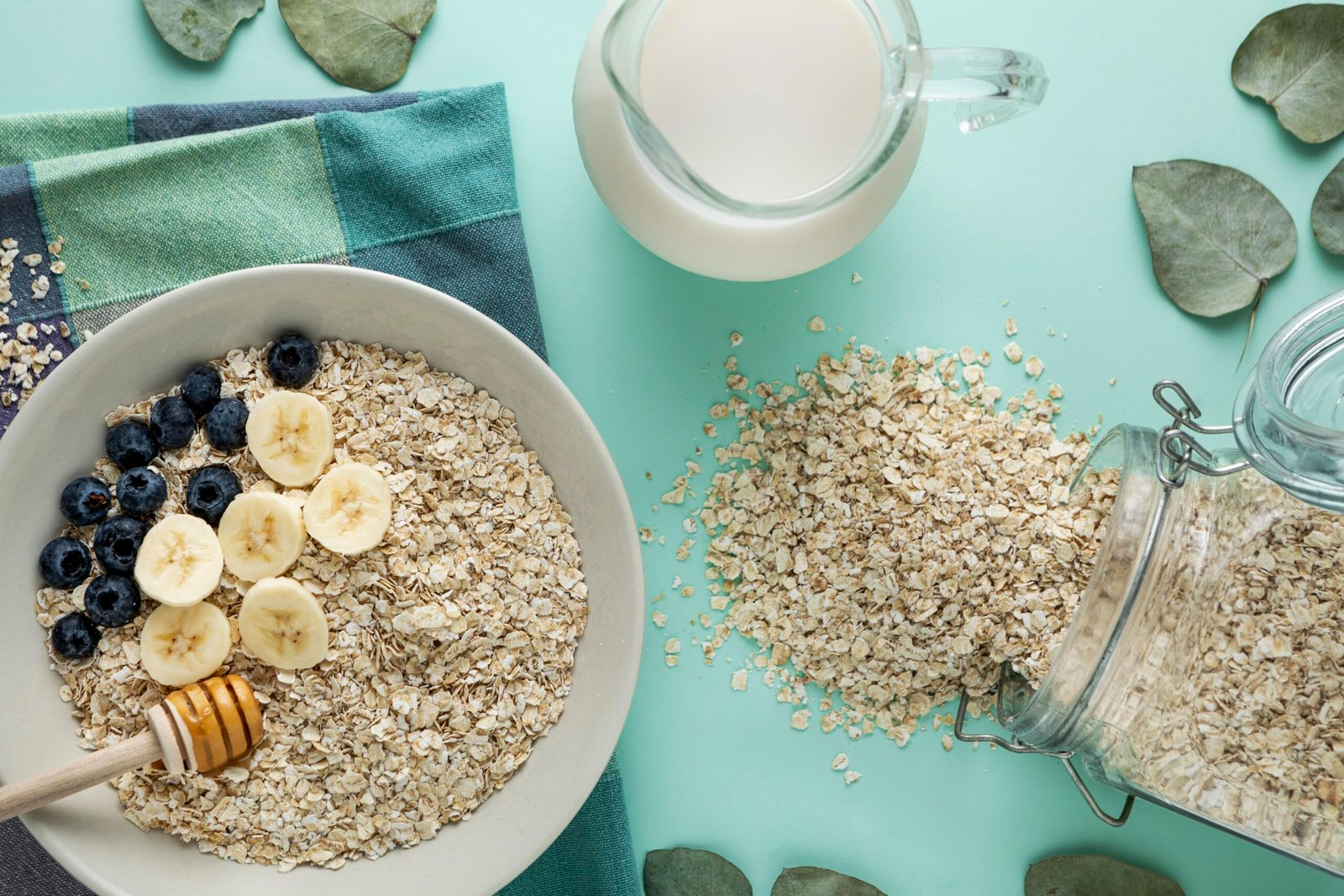Latest posts
-
Fermented Foods for the Gut-Muscle Axis: Kimchi, Kefir, and Beyond

Emerging research highlights the powerful role of fermented foods in supporting both gut health and muscle recovery. This connection, often called the gut-muscle axis, underscores how a balanced gut microbiome can influence inflammation, immune response, and even exercise performance. How Fermented Foods Aid Recovery ✅ Probiotics found in fermented foods like kimchi, kefir, sauerkraut, and…
-
Post-Workout Recovery 101: Foods to Repair and Rebuild Faster

What you eat after exercise plays a crucial role in muscle repair, reducing soreness, and replenishing energy for your next workout. Optimizing recovery through nutrient timing ensures that your training efforts yield the best results. Protein + Carbs Combo After physical activity, your body needs a mix of protein (to repair muscle fibers) and carbohydrates…
-
Pre-Workout Fuel: What to Eat for Maximum Energy and Endurance

The right pre-workout nutrition can significantly enhance your performance, stamina, and recovery, whether you’re hitting the weights, cycling, or running long distances. Consuming foods that provide sustained energy, support blood flow, and minimize digestive discomfort is key. Here’s how to fuel smartly before your next workout: Complex Carbs + Light Protein Combining slow-digesting carbohydrates with…
-
Hydration Hacks Beyond Water: Herbal Teas and Infused Recipes

Hydration is essential for maintaining energy levels, supporting digestion, and promoting overall health. While plain water is a cornerstone of good hydration, there are many delicious and nourishing alternatives that can help you stay hydrated throughout the day. From hydrating foods to herbal teas and creative infusions, here are some practical hacks to elevate your…
-
The Truth About Snacking: Smart Choices for All-Day Energy

Snacking often gets a bad reputation, but when done right, it can be a powerful tool to sustain energy, curb cravings, and support overall nutrition. The key is to make smart choices that fuel your body rather than drain it. Why Smart Snacking Matters On the other hand, poor snack choices—such as highly processed options…
-
The Gut-Brain Connection: How Fiber Fuels Mental Clarity

Emerging research highlights the profound link between gut health and brain function, often referred to as the gut-brain axis. One key player in this relationship is fiber, particularly prebiotic fibers, which serve as nourishment for beneficial gut bacteria. By supporting a healthy gut microbiome, fiber indirectly enhances cognitive function, mood, and mental clarity. How Does…
-
Magnesium Myths: Best Foods to Prevent Cramps and Boost Recovery

Magnesium is an essential mineral that plays a critical role in muscle function, energy production, and recovery. Despite its importance, magnesium is often misunderstood, leading to widespread myths about its role in preventing cramps and aiding post-exercise recovery. Let’s clarify these misconceptions and highlight the best food sources to optimize your intake. Myth vs. Fact:…
-
Collagen-Rich Foods: Beyond Supplements for Joint and Muscle Health

Collagen is the most abundant protein in the human body, providing essential support to joints, muscles, skin, and connective tissues. While supplements are popular, many people overlook the powerful benefits of collagen-rich foods that can naturally boost collagen production and promote overall musculoskeletal health. Here’s how to go beyond supplements and nourish your body with…
-
Fiber’s Hidden Role in Curbing Cravings and Balancing Blood Sugar

Dietary fiber is often celebrated for its role in digestive health, but its impact extends far beyond regularity. Fiber plays a pivotal role in curbing cravings, stabilizing blood sugar levels, and promoting long-term metabolic health. Understanding the different types of fiber—and how to incorporate them—can empower you to make smarter, more satisfying food choices. Soluble…
-
Circadian Rhythm Eating: Aligning Meals with Your Body Clock

Your body operates on an internal clock known as the circadian rhythm, which regulates numerous physiological processes, including sleep-wake cycles, hormone release, and notably, metabolism. Emerging research suggests that aligning your meal times with your circadian rhythm—commonly referred to as “circadian rhythm eating”—can enhance metabolic health, support weight management, and improve overall well-being. Why Meal…
